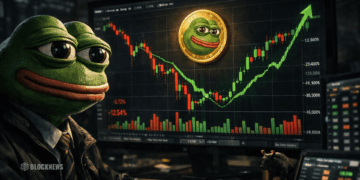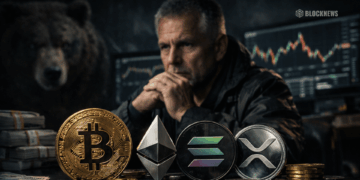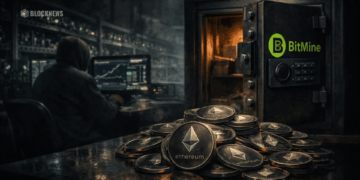- OpenSea’s OS2 Update Sparks NFT Farming Frenzy – The platform’s new XP rewards system encourages high-frequency flipping instead of organic trading, leading to artificially inflated marketplace volume and unstable NFT floor prices.
- Community Backlash Over Market Manipulation – Many traders are accusing OpenSea of prioritizing fees and engagement metrics over the health of the NFT ecosystem, with some calling the $SEA airdrop a last-minute liquidity grab before the market cools off.
- Uncertainty Over OpenSea’s Response – Co-founder Devin Finzer briefly mentioned XP rewards extend beyond bidding and listing but offered no concrete solutions to prevent wash trading. The NFT community fears unchecked speculative trading could lead to long-term damage, similar to past issues seen with Blur’s farming mechanics.
OpenSea’s long-awaited OS2 update and the $SEA token airdrop are here, but instead of celebration, the NFT space is buzzing with frustration. The platform’s new XP rewards system—designed to encourage bidding and listing—has turned into an NFT farming frenzy, with traders exploiting the mechanics to rack up rewards through rapid flips and artificial volume boosts.
The big question now? Has OpenSea sacrificed the long-term stability of the NFT market just to pump engagement and fees?
XP Farming Gone Wild—A System Built for Exploitation?
At the heart of the controversy is OpenSea’s XP model, which dishes out $SEA token rewards for actions like placing bids and listing NFTs—not necessarily buying and holding them. Traders quickly figured out that they could game the system by flipping assets at breakneck speed, rinsing and repeating with minimal losses to maximize XP rewards.
The result? A flood of artificial trades that distort NFT floor prices, making the market appear far more active than it really is.
Blur farming was bad, but this? This is next-level.
Waleswoosh, a well-known market observer, called OS2 “Blur farming on steroids,” pointing out how OpenSea failed to implement a cooldown to prevent excessive wash trading. One top XP farmer allegedly cycled NFTs every 24 seconds, dumping them onto the next bidder while paying just $5.38 in OpenSea fees per trade.
For many, OpenSea’s latest move reeks of desperation—an attempt to inflate engagement metrics and please investors, even if it means destroying NFT stability in the process.
Community Backlash: “This is a Cash Grab”
The reaction from the NFT community? Not great.
Traders and collectors are furious, accusing OpenSea of prioritizing revenue over the ecosystem’s health. Some have outright called it “a disgrace”, arguing that OpenSea copied Blur’s infamous farming mechanics with zero concern for genuine collectors and creators.
Others see the $SEA airdrop as nothing more than a last-minute cash grab before the market cycle cools off. One community member summed it up bluntly: “It’s just another liquidity play.”
With sentiment turning sour, the backlash is only growing stronger.
Will OpenSea Listen—Or Will History Repeat Itself?
So far, OpenSea hasn’t directly addressed the concerns.
Co-founder Devin Finzer made a vague statement that XP rewards go beyond bidding and listing, but failed to clarify how OpenSea intends to curb wash trading and protect floor prices.
If history is any guide, unchecked farming mechanics like these can wreak havoc on an NFT market already struggling with liquidity and stability. Blur’s past farming seasons showed how speculative trading can create artificial bubbles—only to leave destruction in its wake.
Now, it’s a waiting game. Will OpenSea course-correct before things spiral out of control, or is this just another short-term money grab at the expense of the ecosystem?
The NFT community is watching—and patience is wearing thin.














